Education Verification Benefits of Conducting Relaible Screening
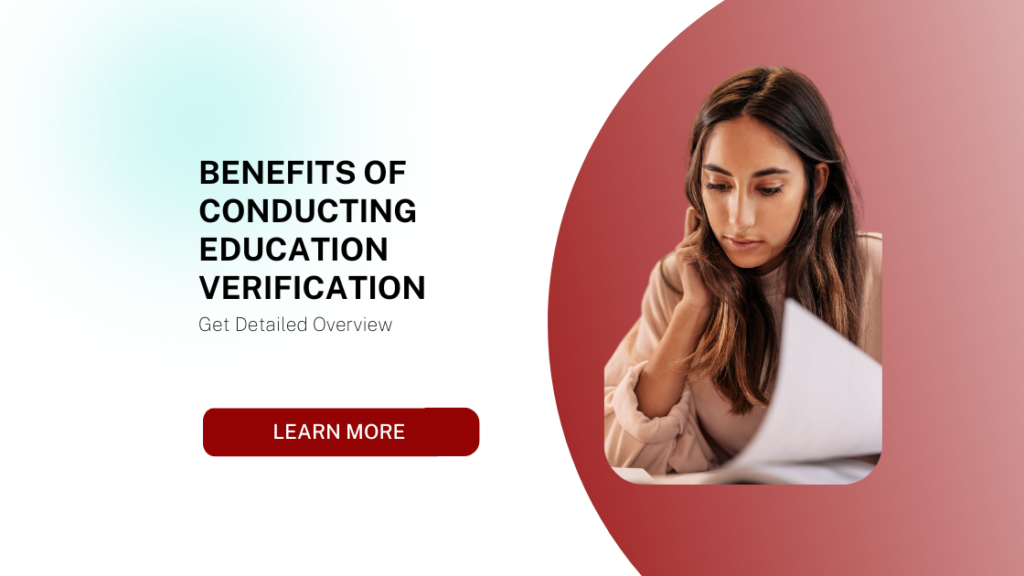
What is Education Verification for Employment and Why is It Important?
Education verification is a critical part of the employment screening process used by employers to confirm the accuracy of the educational qualifications listed by candidates on their resumes or job applications. This step helps ensure that potential hires possess the necessary academic credentials to perform the job at hand, safeguarding employers from potential fraud or hiring unqualified individuals.
In this article, we will explore the importance of education verification for employment, how it fits into the broader hiring process, and why employers utilize this tool in their candidate selection. Additionally, we will debunk some common misconceptions about education verification to clear up any confusion.
What is Education Verification?
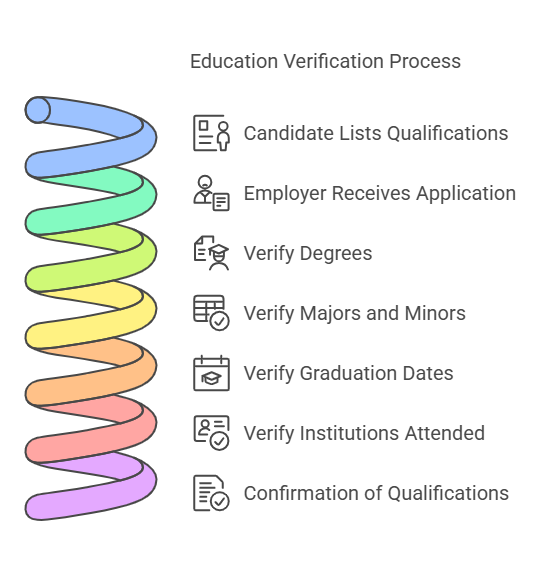
Education verification is the process of confirming the academic qualifications listed by a candidate during the hiring process. It involves validating details such as:
- Degrees: Checking the degree(s) a candidate claims to have earned, including undergraduate and graduate programs.
- Majors and Minors: Verifying the areas of study listed by the candidate.
- Graduation Dates: Confirming when the candidate completed their degree.
- Institutions Attended: Ensuring that the schools or universities the candidate lists are legitimate and that the candidate actually attended them.
Employers rely on education verification to confirm that the qualifications presented by candidates are legitimate. This is crucial because misrepresentation of educational qualifications is relatively common, and employers want to protect themselves from hiring someone who doesn’t have the necessary academic background.
How Education Verification Fits into the Hiring Process
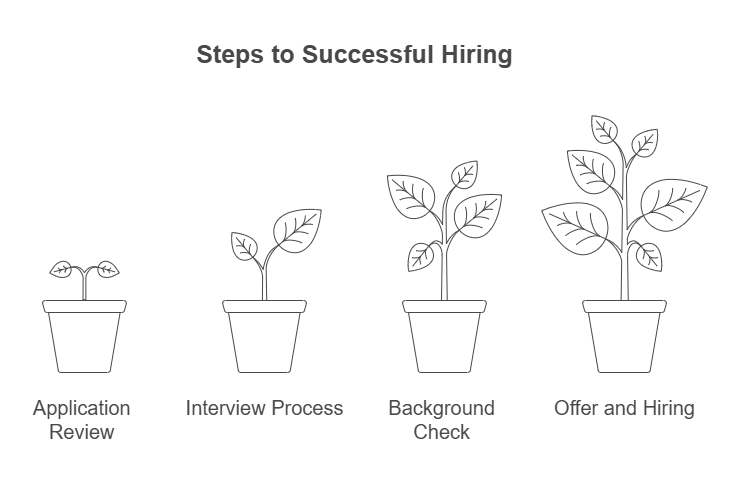
Typically part of a background check conducted by employers as part of their employee screening process. Here’s where it fits into the larger hiring timeline:
- Application Review: The hiring process begins when a candidate submits their resume or application. At this stage, employers often glance over educational qualifications to determine if a candidate is qualified for the role.
- Interview Process: During the interview, employers may ask about the candidate’s educational background in more detail, including what they studied and how it applies to the job. However, the final confirmation of credentials usually happens after the interview process.
- Background Check: After the candidate has been interviewed, if the employer is considering making an offer, they will begin a formal background check. Education verification is a key component of this check, along with criminal history, work experience, and other relevant factors.
- Offer and Hiring: If everything checks out, the employer may extend a job offer, and the final step is typically the completion of all paperwork. If discrepancies are found during the verification process, however, it can lead to withdrawal of the job offer or disqualification from the hiring process.
Why Employers Use Education Verification
Employers conduct education verification for several reasons, each contributing to a smoother hiring process and better hiring decisions:
1. Preventing Fraud
One of the primary reasons for conducting education verification is to prevent candidates from misrepresenting their academic qualifications. According to a report from the National Association of Colleges and Employers (NACE), educational fraud is one of the most common forms of resume fraud. Verifying that a candidate has the degrees and certifications they claim ensures that the organization isn’t unknowingly hiring someone who does not meet the required educational standards.
2. Ensuring the Right Fit
Verifying a candidate’s education helps employers confirm that the individual has the necessary qualifications to perform the job. For instance, some positions may require specific degrees, certifications, or training to ensure the candidate has the skills and knowledge needed for success. Education verification provides a safeguard, helping companies ensure they hire individuals who meet their job requirements.
3. Maintaining Professional Credibility
Hiring employees with the appropriate educational qualifications helps businesses maintain their credibility and avoid hiring unqualified individuals. For example, in industries such as healthcare or law, credentials are critical for meeting professional standards and legal requirements. Employers need to ensure that their hires meet industry standards to maintain their own reputations and minimize legal liabilities.
4. Legal Compliance
Some industries or job roles require specific educational qualifications for regulatory or legal reasons. By verifying education, employers ensure they are complying with these industry regulations and avoid hiring someone who may be disqualified or legally prohibited from performing the job.
Common Misconceptions About Education Verification
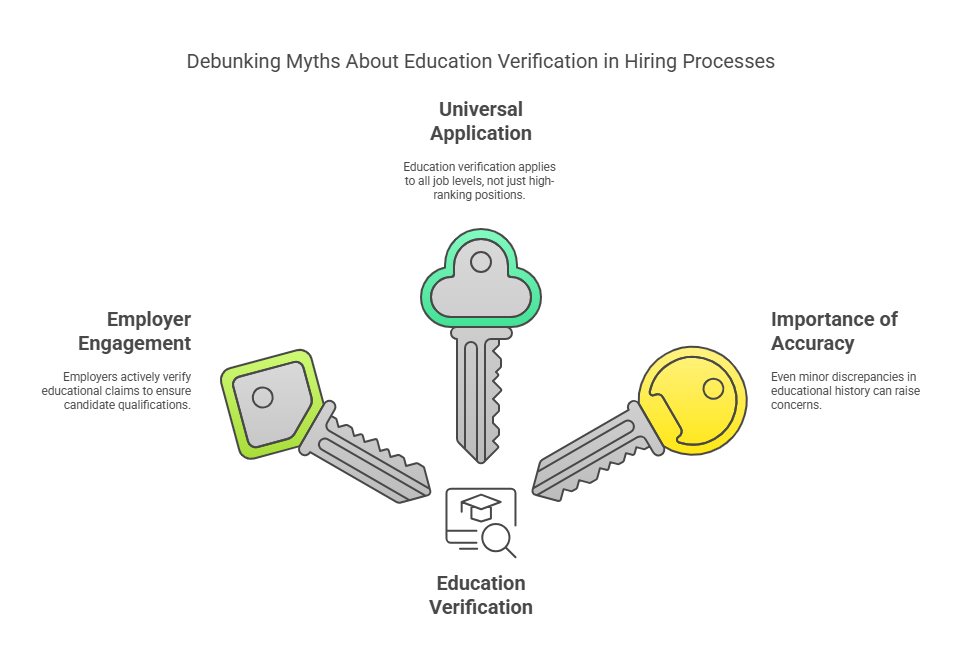
While it is an important part of the hiring process, several myths and misunderstandings surround it. Here are some common misconceptions:
1. “Employers Don’t Really Check Education”
Some job seekers believe that employers rarely verify educational claims. However, this is not the case. In fact, education verification is a standard part of most employers’ background checks, especially for roles that require specific qualifications. Employers take the verification process seriously to protect themselves from the risks of hiring unqualified candidates.
2. “Education Verification is Only for High-Level Positions”
Many believe that education verification is only relevant for executive or highly specialized positions. However, education verification is essential for all levels of employment, from entry-level to senior management roles. Employers need to ensure that every candidate, regardless of the role, meets the educational qualifications necessary for the job.
3. “I Don’t Need to Worry About Minor Discrepancies”
Some candidates may believe that small discrepancies in their educational history—such as a slight variation in their graduation date—won’t be noticed. However, even minor inconsistencies can raise red flags during a background check. It’s important to be accurate and transparent about your education history to avoid complications later in the hiring process.
How Education Verification for Employment Works: Step-by-Step Guide and Best Practices
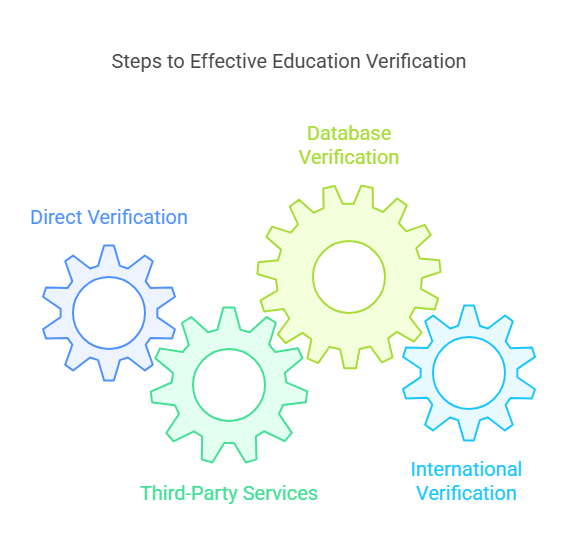
This Process is typically conducted by contacting educational institutions directly or using third-party verification services. Below is a detailed breakdown of how the process works.
How Education Verification is Conducted
1. Direct Verification with Institutions
In this method, employers or background check providers directly contact the educational institution the candidate claims to have attended. This could be through:
- Official Requests: The employer may request official verification letters or transcripts from the school to confirm the candidate’s degree, graduation date, and other pertinent information.
- Phone or Email Inquiries: Employers may contact the school’s registrar office via phone or email to confirm details like degree type, dates of attendance, and major.
2. Third-Party Verification Services
Using third-party verification services like ExactBackgroundChecks.com is a popular and efficient way to conduct education verifications. Here’s how it works:
- Convenience: Online platforms like ExactBackgroundChecks.com make it easy for employers to verify education credentials without the need for manual contact with institutions.
- Speed: Third-party services typically offer faster results, providing employers with verification reports within a short timeframe.
- Accuracy: These services often have access to a vast network of institutions and databases, ensuring accurate and comprehensive verification.
By utilizing third-party services, employers save time and effort in the verification process, while gaining access to accurate, real-time data from educational institutions.
3. Database and Transcript Verification
Some employers or background check services use national databases to verify education records. These databases store information about degrees and institutions. Additionally, candidates may be asked to submit copies of their official transcripts as part of the verification process.
4. Verification of International Education
For candidates who have attended schools outside the United States, education verification becomes more complex. Employers must:
- Work with International Verification Services: These services specialize in confirming foreign education credentials.
- Understand Different Education Systems: Verifying international education requires a thorough understanding of varying grading systems, degree titles, and education standards.
What Employers Look for During Education Verification
Employers typically verify the following details during the education verification process:
- Institution Name: The name of the school or university the candidate attended.
- Degree Earned: Whether the candidate earned the degree they claim (e.g., bachelor’s, master’s, etc.).
- Graduation Date: The actual date of graduation, ensuring it matches what the candidate stated.
- Field of Study: Verifying the major and any minors the candidate lists.
Employers want to ensure that the information provided by the candidate matches what the educational institution has on record. Consistency between what is claimed and what is verified is crucial.
The Importance of Accuracy and Consistency in Education Records
Ensuring accuracy and consistency in education records is vital for both candidates and employers. Any discrepancies, no matter how small, can lead to a loss of trust or the withdrawal of a job offer. It’s essential for candidates to double-check their education information before submitting it to employers and to work with reliable verification services that will help keep records accurate.
How to Ensure Your Education Credentials Are Verified Correctly
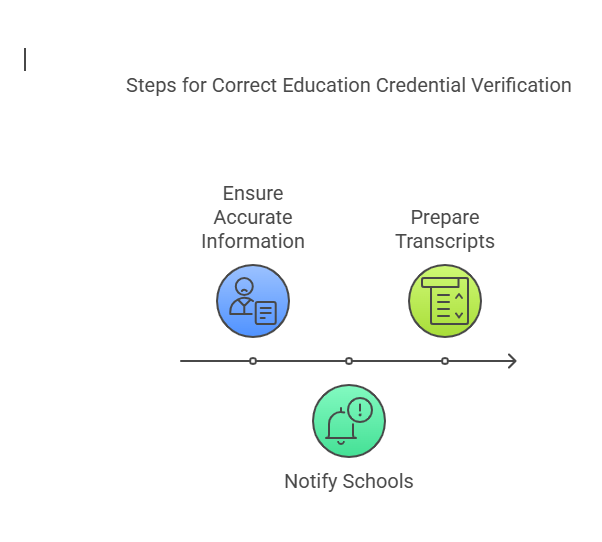
Candidates can take the following steps to ensure their education credentials are verified correctly:
- Ensure Accurate Information: Always provide correct and detailed information on your resume, including full names of institutions, degree types, and dates.
- Notify Schools: If your school has a name change or accreditation updates, ensure that this is reflected in your records.
- Prepare Transcripts: Have your official transcripts ready to submit if requested by the employer or background check service.
Legal Aspects of Education Verification
Employers’ Legal Responsibilities
Employers must comply with EEOC guidelines and Fair Credit Reporting Act (FCRA) regulations during education verification. These laws ensure that employers perform background checks fairly and consistently without violating applicants’ rights.
Consent and Privacy
It is essential that employers obtain candidate consent before performing an education verification check. Consent forms protect both the candidate’s privacy and the employer’s liability.
State-Specific Laws
Certain states have specific laws that govern background checks, including Ban the Box laws, which restrict when certain questions can be asked in the hiring process, or laws regarding how education verification can be performed.
International Considerations
Employers hiring internationally must also comply with different regulations regarding education verification, which can vary significantly from one country to another.
FAQs About Education Verification for Employment
How long does it take for employers to verify my education?
The timeline can vary but usually takes a few days to a couple of weeks, depending on the institution or verification service.
What happens if there is a discrepancy in my education verification?
If a discrepancy is found, the employer may withdraw the job offer or ask for further clarification.
Does education verification include high school diplomas?
Generally, education verification focuses on higher education. However, in some cases, employers may also verify high school diplomas if required for the position.
Can I be denied a job if my education verification fails?
Yes, employers may disqualify candidates if discrepancies in education are found.
Are education verification checks mandatory for all employers?
Not all employers conduct education verification. It depends on the industry and the specific job requirements.
Conclusion
Education verification plays a key role in the hiring process, ensuring that candidates possess the credentials they claim and that employers make informed, legally compliant hiring decisions. By utilizing services like ExactBackgroundChecks.com, employers can streamline the verification process and ensure accuracy. Candidates should ensure their educational records are accurate and up to date to avoid issues during the hiring process.



